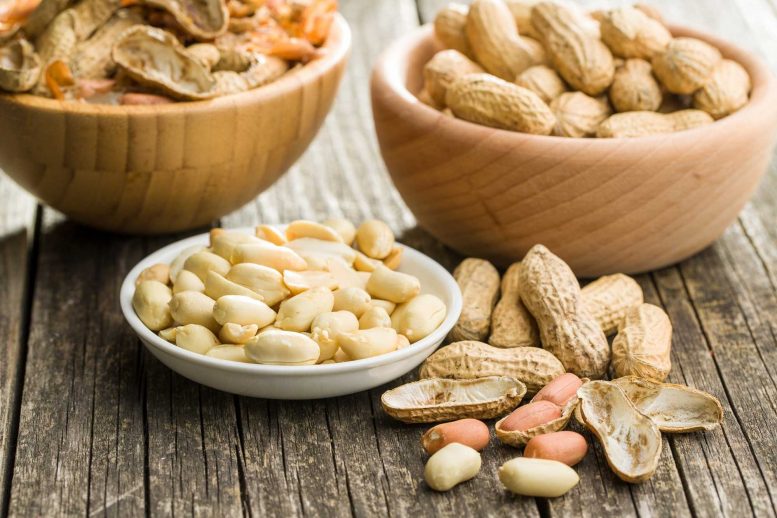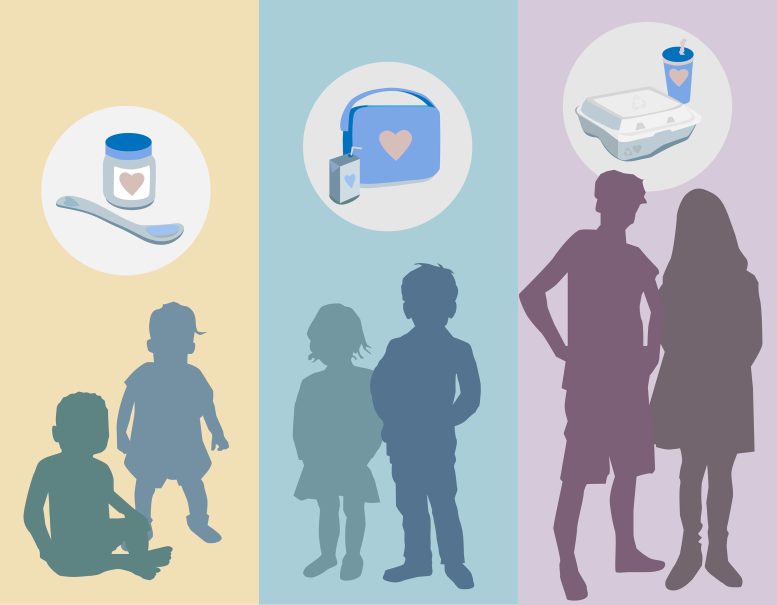
Introducing peanuts into infants’ diets from as early as four months has been shown to significantly reduce the likelihood of developing a peanut allergy in adolescence, a long-term study from King’s College London reveals. The study confirms that early and regular peanut consumption lowers the risk of allergy by 71% compared to avoidance.
Feeding children peanuts regularly from infancy to age five reduced the rate of peanut allergy in adolescence by 71%, even after many years when the children ate or avoided peanuts as desired.
The new findings provide conclusive evidence that introducing peanuts into babies’ diets early will achieve long-term prevention of peanut allergy.
Importance of Early Introduction
Lead investigator Professor Gideon Lack from King’s College London said: “Decades of advice to avoid peanuts has made parents fearful of introducing peanuts at an early age. The evidence is clear that the early introduction of peanuts in infancy induces long-term tolerance and protects children from allergies well into adolescence. This simple intervention will make a remarkable difference to future generations and see peanut allergies plummet.”

LEAP-Trio Trial Findings
Results from the LEAP-Trio trial are published today (May 28) in the NEJM Evidence by researchers from King’s College London and sponsored and co-funded by the US National Institutes of Health’s National Institute of Allergy and Infectious Diseases (NIAID).
Peanut allergy is rising in Western countries. The prevalence of peanut allergy is about 2% in young children in North America, UK, Western Europe, and Australia. For some, even small amounts of peanuts can lead to a life-threatening allergic reaction. This, as well as conflicting advice, has made parents and caregivers fearful of introducing peanuts into diets.
Building on Previous Research
The new research findings come from the LEAP-Trio study, building on the results of the Learning Early About Peanut Allergy (LEAP) clinical trial. In the first trial, half of the participants were asked to regularly consume peanuts from infancy until age 5 years, while the other half were asked to avoid peanuts during that period. Researchers found that early introduction of peanuts reduced the risk of peanut allergy at age 5 by 81%.
Long-Term Follow-Up Results
The investigators followed up both groups from age 6 to age 12 or older. In that period, children could choose to eat peanuts in whatever amount and frequency they wanted. They found that 15.4% of participants from the early childhood peanut-avoidance group and 4.4% from the early childhood peanut-consumption group had peanut allergy at age 12 or older. These results show that regular, early peanut consumption reduce the risk of peanut allergy in adolescence by 71% compared to early peanut avoidance.
Implementation of Early Peanut Introduction
Professor George Du Toit, Co-Lead Investigator from King’s College London said: “This is a safe and highly effective intervention which can be implemented as early as 4 months of age. The infant needs to be developmentally ready to start weaning and peanuts should be introduced as a soft pureed paste or as peanut puffs.”
Study Methodology and Implications
The researchers also found that although participants in the LEAP peanut-consumption group ate more peanuts throughout childhood than the other participants overall, the frequency and amount of peanuts consumed varied widely in both groups and included periods of not eating peanuts. This shows that the protective effect of early peanut consumption lasts without the need to consistently eat peanut products throughout childhood and early adolescence.
The LEAP-Trio study team tested the adolescents for peanut allergy primarily through an oral food challenge. This involved giving participants gradually increasing amounts of peanuts in a carefully controlled setting to determine if they could safely consume at least 5 grams of peanuts, the equivalent of more than 20 peanuts. The study team also surveyed participants about their recent patterns of peanut consumption and verified the self-reports through measurements of peanuts in dust from participants’ beds, a technique previously validated by LEAP investigators.
Professor Lack, who is the Head of the Children’s Allergy Service at Guy’s and St Thomas’ NHS Foundation Trust, added: “Early consumption of peanuts will prevent more than 100,000 new cases of peanut allergy every year worldwide.”
Reference: “Follow-up to Adolescence after Early Peanut Introduction for Allergy Prevention” by George Du Toit, M.B., B.Ch., Michelle F. Huffaker, M.D., Suzana Radulovic, M.D., Mary Feeney, M.Sc., R.D., Helen R. Fisher, M.Sc., Ph.D., Margie Byron, M.S., Lars Dunaway, Ph.D., Agustin Calatroni, M.S., Molly Johnson, M.S., Ru-Xin Foong, M.B., Andreina Marques-Mejias, M.D., Ph.D., Irene Bartha, M.D., Ph.D., Monica Basting, M.A., Helen A. Brough, M.B., Ph.D., Carolyn Baloh, M.D., Tanya M. Laidlaw, M.D., Henry T. Bahnson, M.S., Graham Roberts, D.M., Marshall Plaut, M.D., Lisa M. Wheatley, M.D., M.P.H., Gideon Lack, M.B., B.Ch. [email protected], and for the Immune Tolerance Network LEAP-Trio Trial Team, 28 May 2024, NEJM Evidence.
DOI: 10.1056/EVIDoa2300311